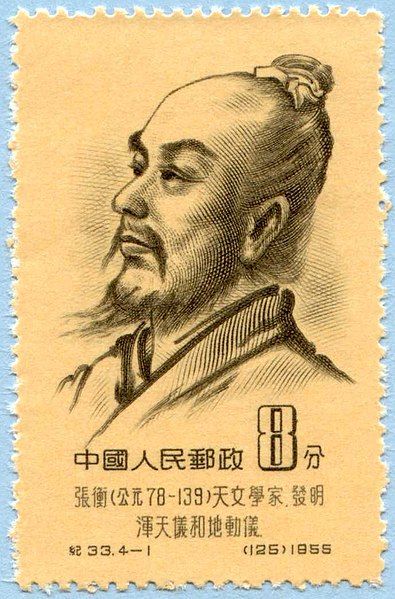Zhang Heng, formerly romanized Chang Heng, was a Chinese polymathic scientist and statesman who lived during the Han dynasty. Educated in the capital cities of Luoyang and Chang'an, he achieved success as an astronomer, mathematician, seismologist, hydraulic engineer, inventor, geographer, cartographer, ethnographer, artist, poet, philosopher, politician, and literary scholar.
A stamp of Zhang Heng issued by China Post in 1955
A pottery miniature of a palace made during the Han dynasty; as a palace attendant, Zhang Heng had personal access to Emperor Shun and the right to escort him
Eastern Han tomb brick depicting the courtyard of a wealthy family's home. Zhang enjoyed a short period of retirement at his home in Xi'e, Nanyang, before being called back to the capital, where he died in 139.
Eastern Han tomb models of watchtowers; the one on the left has crossbowmen in the top balcony. Zhang wrote that Western Han emperors were entertained by displays of archery from the balconies of towers along Chang'an's Kunming Lake.
Astronomy in China has a long history stretching from the Shang dynasty, being refined over a period of more than 3,000 years. The ancient Chinese people have identified stars from 1300 BCE, as Chinese star names later categorized in the twenty-eight mansions have been found on oracle bones unearthed at Anyang, dating back to the mid-Shang dynasty. The core of the "mansion" system also took shape around this period, by the time of King Wu Ding.
Wide view of the Crab Nebula.
A method of making observation instruments at the time of the Qing dynasty
Celestial globe from the Qing dynasty
Early European drawing of the Beijing Ancient Observatory.








